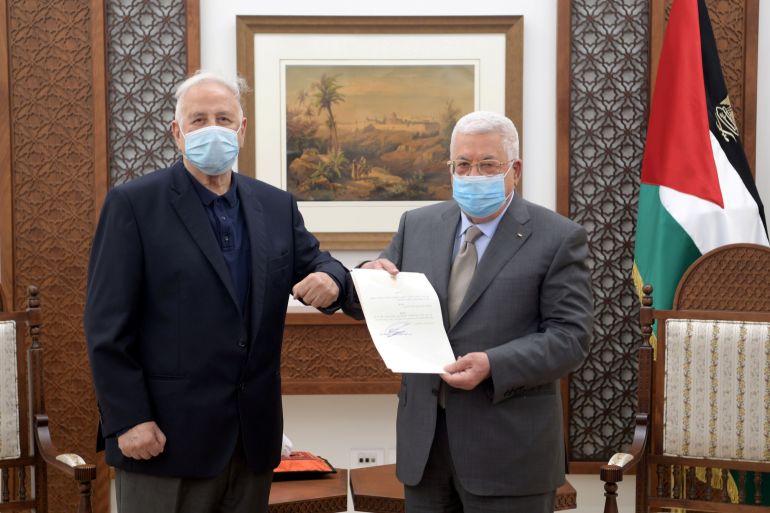Palestinian factions agree on ‘mechanisms’ for long-delayed polls
At the end of a two-day summit in Cairo, Fatah, Hamas and 12 other factions say they have agreed to hold legislative and presidential elections in May and July.

Palestinian factions Fatah and Hamas say they have agreed on the “mechanisms” for upcoming legislative and presidential elections, after a rapprochement between the two movements.
The deal reached on Tuesday in Egypt’s capital provides for an “electoral cases court” and commits to allowing free campaigning and voting.
Keep reading
list of 3 itemsUncertainty as Palestine’s Abbas announces elections
PA’s Mahmoud Abbas says Trump plan offers ‘Swiss cheese’ state
A joint statement at the end of the two-day session in Cairo said both groups and 12 other Palestinian factions pledged “to abide by the timetable” for the long-delayed balloting and “respect and accept” the results.
The parliamentary and presidential polls – set for May 22 and July 31, respectively – are the first in 15 years.
There has been widespread scepticism the elections will even happen.
Many Palestinians believe they are mainly an attempt by Palestinian Authority (PA) President Mahmoud Abbas, of Fatah, to show his democratic credentials to new US President Joe Biden, with whom he wants to reset relations after they reached a new low under Donald Trump.
The Fatah-run PA has limited self-rule in the Israeli-occupied West Bank, while Hamas has held power in the Gaza Strip since 2007, the year Israel imposed a devastating blockade on the Mediterranean enclave.
According to the statement, the “electoral court” will be comprised of judges from the West Bank, Gaza and East Jerusalem, who will rule in any election-related legal disputes.
“This court is responsible for monitoring all matters relating to the electoral process, its results, and the issues arising from it.”
It also said “the uniformed Palestinian police, and no one else”, will guard voting sites in the West Bank and Gaza Strip and “their presence will be in accordance with the law”.
The two groups also agreed to release detainees held on political grounds in the West Bank and Gaza and allow unrestricted campaigning.
There are 2.8 million eligible voters in Gaza and the West Bank.
Abbas, 85, announced in January the dates for the elections, and he is expected to run.
The last ballot, in 2006, ended in a surprise win by Hamas in its first participation in parliamentary elections. Hamas then pushed Fatah out of Gaza when the latter refused to recognise the result of the vote.